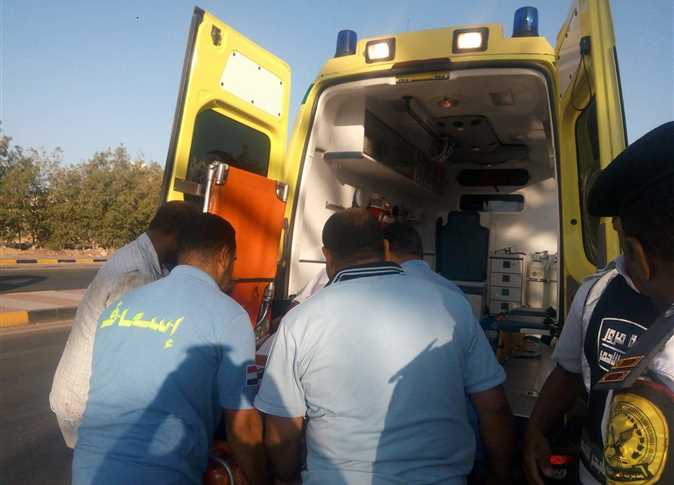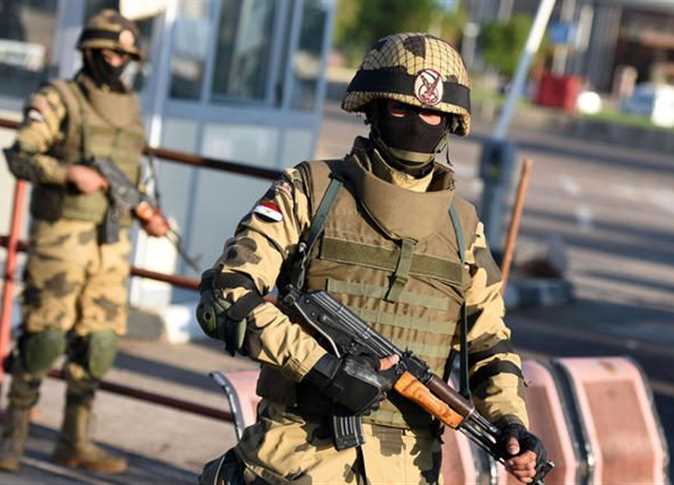Former President Hosni Mubarak’s security services used excessive force in an attempt to quell the 18-day uprising that led to the president’s ouster, human rights watchdog Amnesty International said in a report released Wednesday. It added that those responsible should be brought to justice.
The 100-page report, entitled “Egypt Rises: Killings, detentions and torture in the ’25 January Revolution,’” details cases of abuse nationwide between 25 January and 11 February, and goes on to make recommendations for what the Egyptian government should do next.
Eight hundred forty people died during the uprising, according to estimates from media and human rights organizations. Thousands more were injured.
The report’s release comes just days before former Interior Minister Habib al-Adly is set to go on trial on charges of ordering the killing of protesters. Other regime figures are expected to face similar charges. Meanwhile, scores of police officials around the country currently stand trial for killing protesters.
The London-based human rights group, however, believes that not enough is being done to expose abuses during the uprising, bring those responsible to justice, and compensate for lost lives and livelihoods at the hands of the security forces.
Amnesty International says that the government should ensure that human rights violations are not repeated.
“Amnesty International believes that victims of the human rights violations that marred the ‘25 January Revolution,’ as well as society at large, deserve to see that their sacrifices were not made in vain, that the machinery of repression is completely overhauled, and that guarantees of non-repetition are consolidated into law and practice,” the report says.
Egypt’s government should also adopt measures to reform the police and other security services to ensure that abuses do not continue, says the report, echoing calls made by many local and international human rights organizations. Although steps have already been taken to that effect, many worry of slow progress amid ongoing use of military tribunals for trying civilian suspects.
The Egyptian government formed a committee to investigate the killing of protesters during the uprising. Amnesty International welcomed the move as a positive step while also saying more needs to be done to provide victims with justice.
“Another shortcoming has been the Commission‘s failure to visit remote areas of Egypt, where abuses took place but which have been largely underreported by the media,” the report says.
While Cairo’s Tahrir Square may have been at the center of attention during the uprising, the Amnesty International report shows that killing and torture of protesters occurred in Alexandria, the Nile Delta and in cities along the Suez Canal. The Amnesty report, however, fails to cover areas in Upper Egypt.
Amnesty International interviewed hundreds of witnesses, victims and their families and provides dozens of examples of arbitrary detention, torture and excessive force.
The report details the killing of six of the 19 people killed in Suez, which saw some of the worst violence from government forces on 28 January, known as the Day of Anger.
Mustafa Gamal Wardani, a 24-year-old employee at a ceramics company was shot in the stomach and killed outside of his house before even joining the protests, the report says.
“Why was he shot? He was so far from the Suez Police Station (several blocks away)," Wardani's father told Amnesty International. "He could not possibly have had time to engage in any violent activity, he just left the house five minutes earlier.”
Many cases of torture at the hands of military police, particularly as part of a crackdown on 3 February, are documented in the report. One 18-year-old protester was arrested outside Tahrir Square and taken to the Egyptian museum where he was “made to undress while still blindfolded, had his feet tied, was handcuffed and was then suspended by a rope upside-down. His head was submerged in a barrel of water and he was given electric shocks. He was ordered to confess that he had been trained by Israel or Iran,” the report says.
That same day, several employees from the Hisham Mubarak Law Center, a well-known human rights organization in Cairo, were detained over night without charges.
These tactics are not new to Egypt. They were commonly used under Mubarak’s government and, the report says, contributed to the climate of discontent that led to the uprising.




